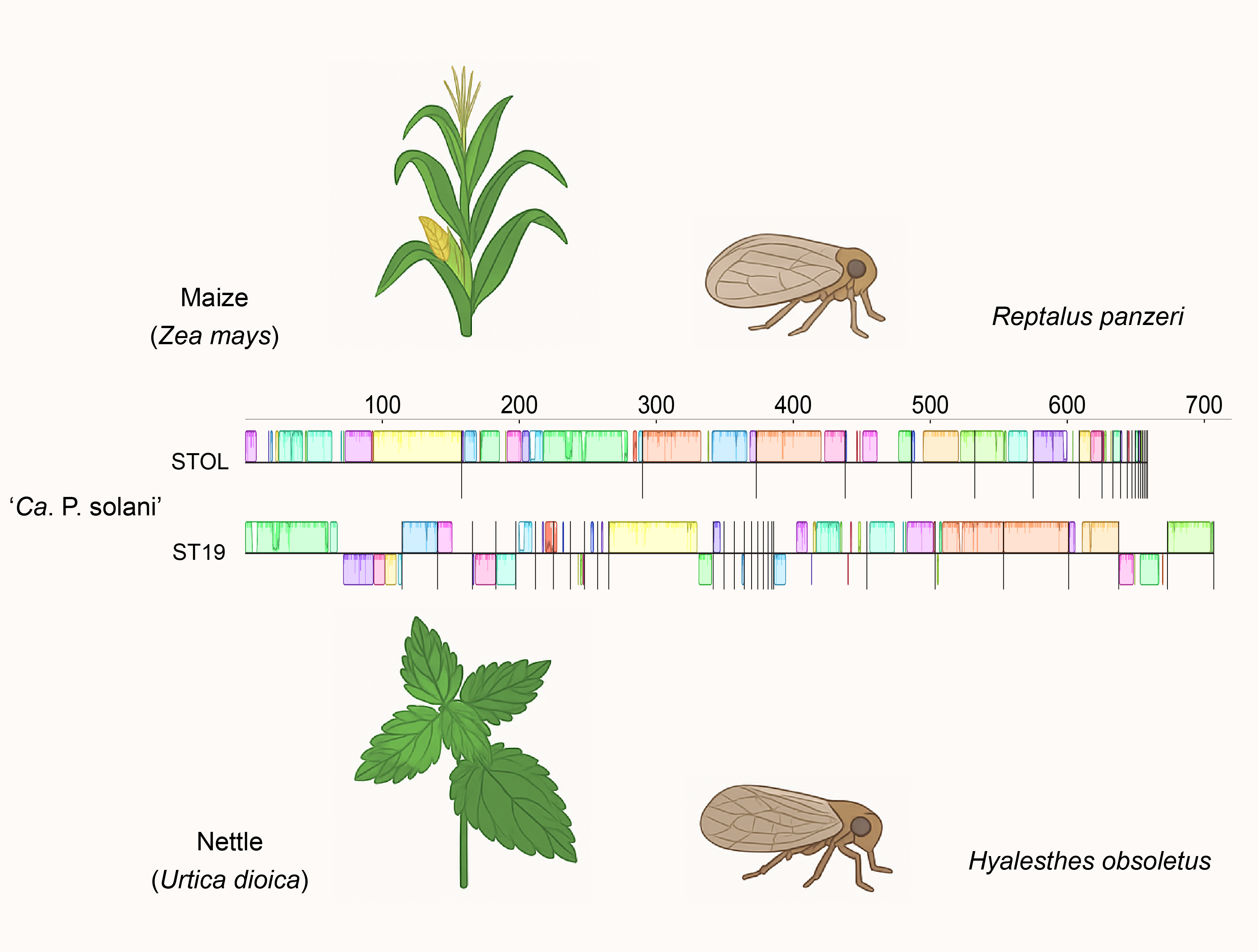[Chih-Horng Kuo] Comparative genomics of the plant-pathogenic bacterium ‘Candidatus Phytoplasma solani’
POST:Phytoplasmas are plant-pathogenic bacteria that cannot be cultured in vitro, posing formidable challenges for research. Among them, ‘Candidatus Phytoplasma solani’ is a major pathogen in the Euro-Mediterranean region. It is transmitted by multiple insect vectors and infects a broad range of crops, including grapevine, potato, tomato, maize, and sugar beet. Strains within this species exhibit striking variation in insect vectors, host range, and pathogenicity. However, the genomic basis underlying these phenotypic differences remains poorly understood. To address this, our team at IPMB participated in an international collaboration using comparative genomics to explore the genetic diversity, pathogenic strategies, and evolutionary potential of this important pathogen.
In the newly published study, the research team found that the strain STOL, primarily associated with maize, possesses a smaller genome with fewer mobile genetic elements and a more conserved chromosomal structure, suggesting greater evolutionary stability. In contrast, the strain ST19, isolated from nettle, shows the opposite characteristics. Through both intra- and interspecific comparative analyses, the team identified effector gene distributions closely linked to pathogenicity in phytoplasmas. The study further reinforces the tight genetic and evolutionary association between effector genes and mobile elements.
Overall, this work presents the most complete genomic dataset of ‘Ca. P. solani’ to date and reveals the remarkable plasticity of its genome structure and pathogenic gene content. These findings lay a foundation for future functional studies of effectors and advance our understanding of the complex interactions among phytopathogenic bacteria, insect vectors, and plant hosts. The results may also inform the development of disease management strategies, such as molecular diagnostics or breeding for resistance.
This study is the result of an international collaboration between Croatia and Taiwan and was published in Microbial Genomics, a journal of the Microbiology Society. The co-corresponding authors are Professor Martina Seruga Music of the University of Zagreb and Dr. Chih-Horng Kuo of the Institute of Plant and Microbial Biology, Academia Sinica. Co-author Shen-Chian Pei is a research assistant in Dr. Kuo’s laboratory.
